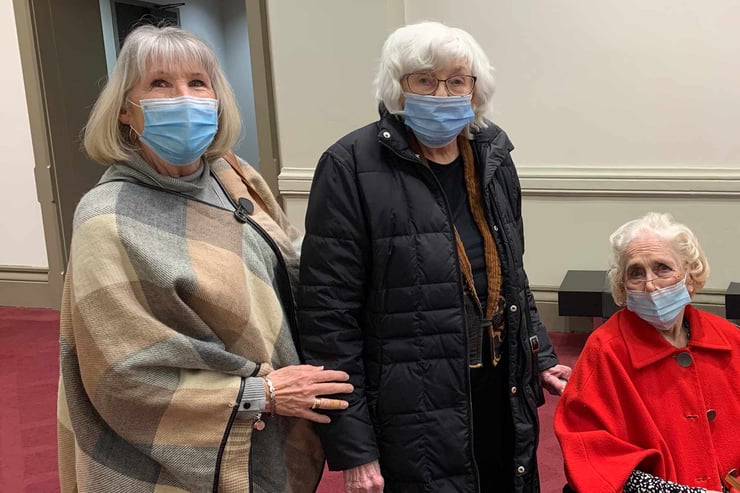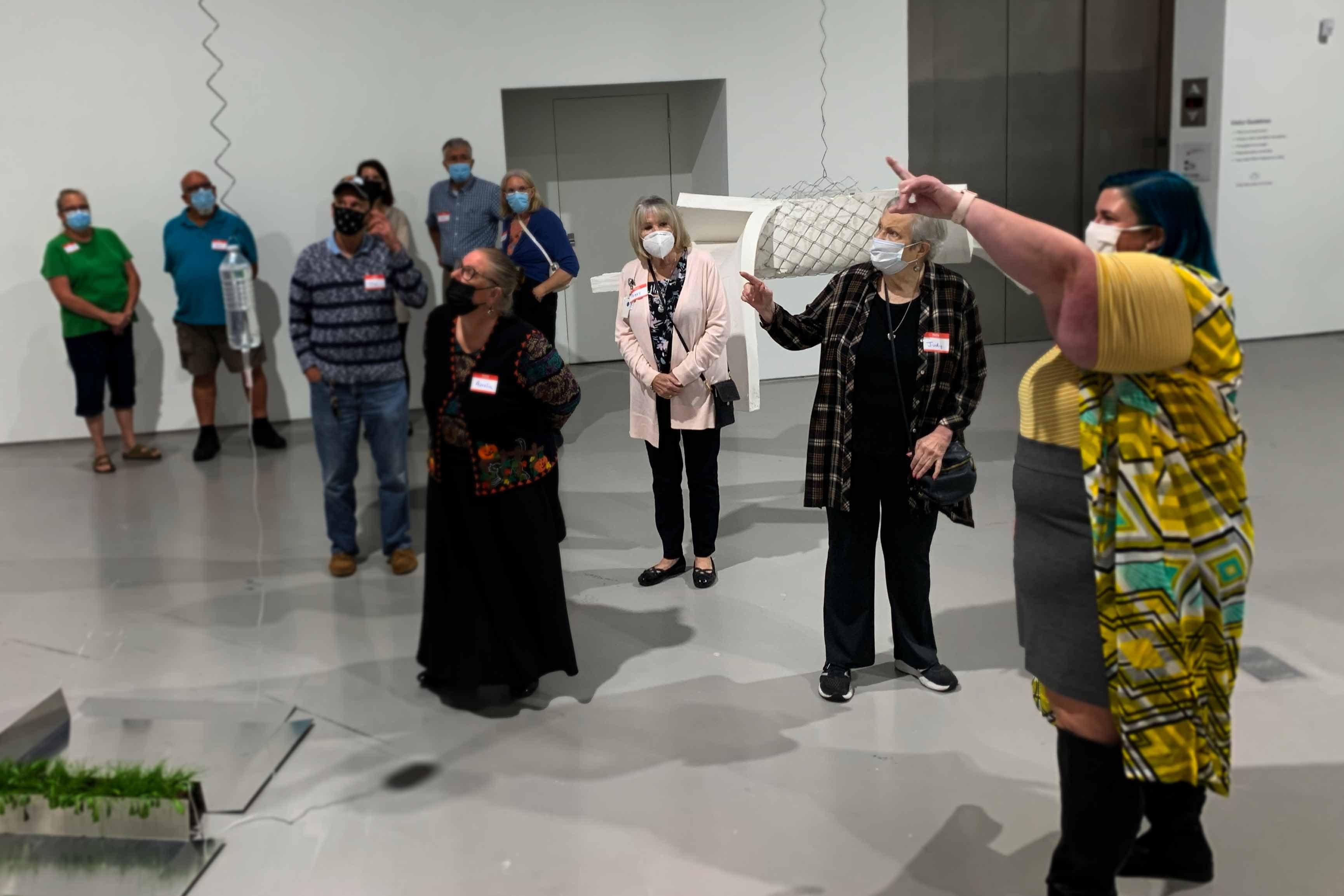
Peggy Slade-Sowders, director of Living Well Senior Solutions attends the Cincinnati Symphony Orchestra rehearsal with a client and her guest.
Dealing with insurance companies or figuring out which health-care options to choose can be perplexing for anybody, but as we age, they can become even more overwhelming. So can remembering when to take medications, making a complex life decision, or paying bills.
When things become difficult for aging or disabled loved ones and their families, there are professionals who can help resolve such problems. Those professionals even can help the seniors have more fun.
“Our families often share their gratitude about the positive impact we have made on their loved ones' lives,” said Peggy Slade-Sowders, director of Living Well Senior Solutions (LWSS), a community-based operation of Episcopal Retirement Services (ERS) that provides such assistance.
Helping seniors and families cope
May is National Aging Life Care Month, so let’s look at how Aging Life Care Professionals can ease stressful situations for older adults and their families.
Why hire an Aging Life Care Professional?
- Professional managers can listen to a problem; offer advice about the best solutions; and then implement those remedies, or connect to an expert in a particular field, such as professionals in medical fields, accounting or estate planning. They then can monitor the situation to ensure the client’s goals are met.
- They’re sometimes known as “professional relatives,” who help when actual relatives aren’t able because they live far away, the older loved one doesn’t want them involved in some aspects of their life, or other reasons.
- Just as family members advocate for their loved ones while they are in the hospital, care managers do so in a variety of situations, such as accompanying them on doctors' visits to make sure the physicians understand what is happening, and their patient understands what the doctors are telling them.
- The managers can assist with one short-term situation or help with several. Sometimes, when they begin helping with one issue an older adult is having, they notice other problems causing the loved one stress.
- The assistance they provide doesn’t only have to be for troublesome things. LWSS professionals also have helped people take fishing trips, and attend family reunions – even distant vacations – by handling necessary details.
- A big plus they provide is peace of mind for family members who live far away or for other reasons can’t help with certain situations – perhaps because a family caregiver can’t take off work to help with something.
- Importantly, it’s wise to look for professionals or organizations that are certified by the Aging Life Care Association, a non-profit organization that represents 2,000 leaders in Aging Life Care. They follow a strict code of ethics and standards of practice. It’s their duty to help clients reach goals that meet the older adults’ values, rather than their own.
Examples of how it can work
One ERS’ Living Well Senior Solutions (LWSS) client was so overwhelmed with some things, he had two packing boxes of mail in his basement and was two years behind on filing taxes.
A LWSS care professional worked with a financial adviser to put everything back in order. His in-depth assessment identified other areas of concern, and the man’s assistance from LWSS increased as his needs did. The care team also made his life more fun, arranging international trips, with caregivers, as well as travel within the United States.
Another LWSS client first received help from a care professional who picked up her mail once a week to forward it to her daughter who lived out of state. The woman later wasn’t following her therapy recommendations, was forgetting to order meals, and wasn’t socializing – even when she was able.
So her family and LWSS increased her assistance to include help with appointments for therapy, physicians, and her neurologist, shopping trips and ordering from menus at the senior retirement center where she lived.
People don’t have to live in an ERS retirement community to be a LWSS client. They can be in their own home, or even on retirement campuses that aren’t operated by ERS.
“We do a good job of providing value for our clients,” Slade-Sowders said. “I have great care managers out in the field. They’re awesome.”
Those care managers include nurses and social workers.
Such services aren’t cheap. They’re typically $100 per hour or significantly more, depending on the complexity of the issue being handled, and part of the country where the loved one lives. On the other hand, the help can save far more money when insurance or health issues are involved, proponents of the services note.
 Arranging cultural outings for clients can be part of the care
Arranging cultural outings for clients can be part of the care
provided by an Aging Life Care Professional.
When's the best time to start?
It's best to start when everyone is healthy and can build a relationship with the care team.
Other times people typically sign up for services are when their loved ones are unable to keep appointments or follow doctors’ advice; when they’re overwhelmed by everyday tasks; or when they forget to pay bills and their utilities are turned off.
Sometimes, professional care starts after a medical crisis that threatens the senior’s independence; when spoiled food or other issues prevent them from eating properly; or they face other needs.
One LWSS client had blood pressure fluctuating wildly while at an eye doctor’s appointment. After contacting the appropriate physician, LWSS arranged for her blood pressure to be checked over a period of several days, and later accompanied her to an emergency room upon her physician's recommendation.
The client’s adult children couldn’t do it because they all lived out of town. A LWSS team manager was providing regular updates to the family throughout the day of the emergency room visit.
“It’s not that we’re taking anybody’s place,” Slade-Sowders said. “We’re just putting in that extra layer of, ‘We’re not going to let you go through this alone.’”
“A lot of people don’t understand the value of what we do until they experience it,” Slade-Sowders said.
She noted LWSS professionals also must follow ERS’ high ethical and professional standards in addition to those of ALCA.
How to contact LWSS
ALCA, the organization that certifies the care professionals, was formed in 1985 by about 50 social workers, nurses, and others, who wanted to create high standards to hold members accountable for the benefit of their clients and the public.
The LWSS team can be contacted at 513-561-0222 or click the button below to ask a question.












